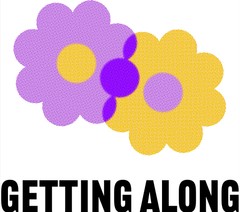Getting Along is a column about taking care of yourself, setting boundaries, and having difficult conversations, for people who struggle with all three.
Advertisement
ACAB,I Miss My FriendsThis is a question I think a lot of people will relate to! The topic has certainly been on my mind since the recent tweet about “missing my C-tier friends” from Alanna Okun (who happens to be an A-tier friend of mine!) and during the subsequent conversation about pandemic FOMO. We’ve been in our new pandemic reality for several months now, and have presumably started to collectively get the hang of things like “having priorities” and “enforcing boundaries.” While that is, broadly, a really good thing, staying home as much as possible and limiting ourselves to just a few (if any!) contacts outside our households isn’t without consequences. When we shrink our lives down to bubbles and pods (or just “a few very close friends”), we lose access to our “weak ties”—that is, the low-stakes casual friendships that research shows are ultimately good for our well-being. To revive these connections, you could try to stay in better touch with your C-tier friends and the new-ish pals who you aren’t going to bubble with but still very much like, and who you hope to hang out with in a year or so when we re-enter society. That might look like texting them directly regularly; switching to a more asynchronous medium like email; or working them into your Google Hangouts rotation every few weeks… all while attempting to communicate “I’m not trying to make you my BFF, I swear, and I totally understand if you aren’t up for this because we all have a lot going on right now.” If any of that feels right to you and the kind of thing your social circle would be into, I say: Go for it!
Advertisement
But I personally think there is, perhaps, a better way forward, which I offer here for your consideration: start a house party Slack. If you’re not familiar with Slack, it’s a workplace messaging app that has chat rooms and DMs (both of which are only accessible to people invited to your specific “workspace”). Because anyone can create a free Slack workspace and invite whomever they want, it’s become increasingly popular with non-work groups and communities—like, say, likeminded listeners of a particular podcast, grad students in the same program, small friend groups, even families. (You could also definitely create a house party Discord, if you prefer! One benefit of Slack is that a lot of people already use it for work, so they’ll just be adding a new “space” to their existing app. But you should do whatever feels right for you and your friends.) A house party Slack, which is a term I just made up, is one in which you (or whichever person in your social circle is the one who throws the best/frequent house parties) simply creates new Slack workspace and then invite all of the people you’d normally invite to a house party—which likely includes some C-tier friends, some new-ish friends, some friends-of-friends, etc. It’s a place for chill, water cooler–esque conversation between people who loosely know each other but aren’t necessarily close. Lately, I’ve been thinking a lot about how there are certain conversations that feel a little too private (or too mundane) for public social media channels, but aren’t so intimate that they need to be reserved for only your closest friends. You’re probably not going into great detail on Instagram or Twitter about all the things you’re buying online, or the latest installment of “my incredibly demanding boss has once again behaved badly,” or the semi-embarrassing but also very funny thing your partner said recently… but you’d totally share this stuff with casual friends at a party because it’s low-stakes, light, gossipy, and easy to contextualize in person/when talking to a specific audience. It’s ultimately personal but not private.
Advertisement
These are the kind of conversations that cease to happen when we are only connecting with the same 3–5 people every month, and the conversations that a house party Slack can help recreate. Using tech tools to “hack” friendships is a bit controversial, and you might be thinking, “Why not just start a group text?” That is a fair question! But I—a person who, in case it’s not clear, is not being paid by Slack to say any of this—feel very strongly that Slack is the preferable medium for this kind of thing.First, texting allows a level of access and intimacy that just isn’t the right match for ongoing casual chit chat with casual friends. As therapist Andrea Bonior writes in her book The Friendship Fix, “texting lets us place something—immediately—into someone else’s consciousness, whether they want it there, and are adequately prepared to deal with it right at that moment, or not.” A group text with 10–40 people would lead to notification overload fairly quickly. After a couple of dumb ill-timed memes or rants, most people are simply going to mute the group text and forget about it. Even if it’s not muted, it’s still going to be kind of a mess and not very fun. Slack is fun! It’s also, importantly, built for big group conversations. The threading functionality, customizable notifications, and ability to create new channels for different subjects make it much easier to stay on top of conversations (or to opt out of them, if you prefer). All of this, plus the ability to DM, means that people can chat about whatever is on their mind without monopolizing the entire group… and, much like at a big group hangout, others can float in or out as they please. And because a lot of people already use Slack for work, they’ll simply be adding a new workspace to their existing app, making it much easier to type in during the day (or really, whenever) than a group chat that may be restricted to thumb typing.
Advertisement
With Slack, you can also be very clearly online or offline, and can set a status (basically an away message, which texting famously does not have). All of this lowers the expectation of an immediate response, which makes it easier to feel OK about adding another thing to your busy life. And the responsibility of participating and replying is shared by many—meaning individuals don’t feel as much pressure to be There and On all the time. Again, this is more in line with what you’d experience at an actual house party: sometimes you’re yelling loudly in the center of the room, sometimes you’re quietly listening, and sometimes people aren’t sure where you are but they know you’re around somewhere. I also like that a Slack workspace, unlike a group text, has a clear and distinct host. It’s important to have one person who is in charge, and who can make decisions about who is invited or not, who can step in should any drama arise, etc. As a big believer in Priya Parker’s “don’t be a chill host” rule for gatherings, I would much rather be in a group conversation where the person in charge is clearly designated and aware of their role. There is, of course, the possibility that a friend of yours who also loves throwing house parties will decide to do this at the exact same time you were planning to do it. What a nice problem in a year filled with Pretty Bad Problems! I think you can deal with this the same way you’d handle it if you were both trying to throw a party the same night. Make your workspace different in some way (by making it about a specific topic or making sure at least half the participants are different from those in the other group); agree to co-host; or simply be willing to be a guest in their house party Slack instead of hosting your own.If you’re not sure how to introduce this concept to your friends, you might send out a text or email saying something to the effect of “I miss all of you very much, and suspect many of you miss catching up with each other every three months in my backyard, so I’m starting a Slack in an attempt to replicate those vibes!” You could also add something like, “I’m feeling pretty anxious about the end of park hangouts and Daylight Saving Time, and I thought this would be a nice low-stakes way to stay in touch with people during what will likely be, uhhhhhh, not the best season ever!” But, really, try not to overthink this part; my guess is that if you decide to go the house party Slack route, most of your friends will kind of immediately get it, and will be excited for it. Rachel Miller is the author of The Art of Showing Up: How to Be There for Yourself and Your People. Follow her on Twitter.

